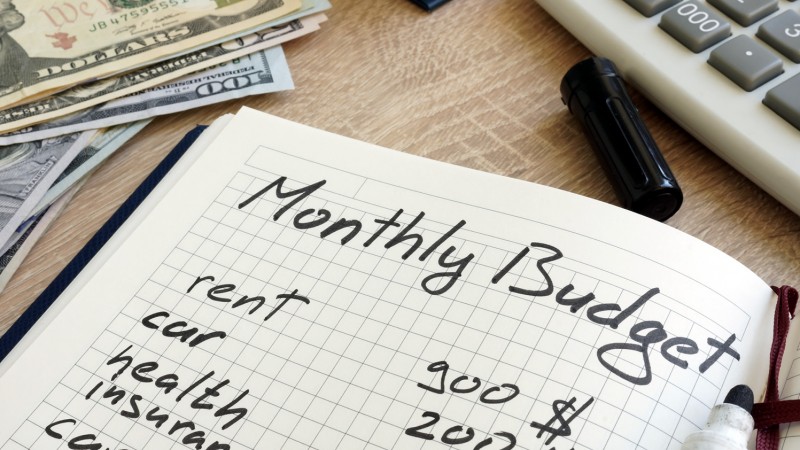Basic Budgeting 101
- Details
- Written by Will from Holland
- Category: Articles

Are you living right up to your income? Going a bit beyond your income to make ends meet—running up credit card debt or dipping into savings? If so, you are not alone.
Get control over why things may not be working out for you financially.
Nearly half of U.S. households spend all of their income (or go beyond) according to a recent Bank of America report.
If you find yourself in this situation—or close to it—it's time to create a budget and stick to it.
But first, you should get control over why things may not be working out for you financially. Chances are, it is not because you earn too little, but because you spend too much, and have the wrong spending habits, to boot.
So, start by reading this article on improving your financial habits.
Now, let's create that budget.
1) Let's Figure out Your Income
Write down all your means of income, from your daytime job, to your independent contractor salary, to your pocket money and your dog-walking gig
2) Now, Pay Yourself First!
Most experts, like FoolProof, say you should make saving at least 10% of your monthly income a serious priority
-
Build an emergency fund to cover 3-6 months of your normal expenses; say you lose your job or get injured and cannot work, this buffer can help you get through the gap in income.
-
Set savings goals! Try to set short-term goals as well as long-terms goal and notice how (rewarding) it feels to save your way towards your target goal, and have that financial buffer for a chance!
3) Track Your Spending!
The expense side of your budget typically lists items such as housing, utilities, food, insurance, and transportation. It also lists loan payments such as car or student loans, as well as your credit card bills. Don't forget to list all your app payments either (or payment app income under #1).
-
This worksheet from the Federal Trade Commission (FTC) can help you look at your monthly income and expenses
4) Cut Your Spending
Listing all of your expenses in a budget can help you identify areas where you can cut spending, as reducing your spending can free up money for saving and paying down debt. For example, save money by packing your lunch and preparing breakfast and dinner at home. You may find other savings by asking yourself these questions.
-
What do you need in a phone plan? Are you paying for more than you need?
-
What are you paying for cable/satellite TV and Internet plans? Can you access your favorite sports and shows through a cheaper streaming service instead?
-
How much do you spend each week on miscellaneous expenses? Would giving yourself a weekly cash allowance help you reduce that spending?
-
Are there other areas where you can find savings?
Note: We don't recommend giving up everything! Having nothing allotted for "fun" in your budget makes it more likely to fail.
5) Stick to Your Plan, and Make it a Habit to Review Your Budget
Now you have that control, keep it. Live within your means, and adjust your numbers whenever your financial picture changes (such as receiving a raise or paying off a loan or credit card)
That's Really It
Simple enough, right?
If you know how much money you have coming in, and you know how much money you spend on a monthly basis, you can't (and won't) spend more than you have. Stay away from credit cards and debt, unless your monthly payments fit in your monthly budget (if not, you're cruising for a financial crash, guaranteed!).
Need More Detailed Help?
Okay, no problem. Let's dig into the weeds, the nitty gritty, and so on. Let's sign you up to our Solo program, and work through an interactive module on budgeting called "Burning Money". That'll do the trick, guaranteed (if you pass, that is).
Enjoy the control on your money and life!
Will


































